LECTURE_HVAC - Video presentations by Experts on Energy Systems and Indoor Environment
Rozsah: 7Počet kreditů: 0
Forma ukončení:
The aim is to obtain information and an international perspective on the energy performance and indoor environmental quality of buildings currently under construction. Another objective is to promote the practice of foreign languages in professional fields.
The lectures are available in an offline version.
Acknowledgement: IP 2023 Internal Competition number 1052301A008 - Supporting modern teaching methods for the new study programme Buildings and Environment - Lectures prof. Vranayova, prof. Hensen-Centnerova, prof. Krajcik.
Coordinator: Michal Kabrhel
Thank you to all the speakers.
In case of unavailability of lecture, please use email: michal.kabrhel (at) fsv.cvut.cz
Acknowledgement: IP 2023 Internal Competition number 1052301A008 - Supporting modern teaching methods for the new study programme Buildings and Environment - Lectures prof. Vranayova, prof. Hensen-Centnerova, prof. Krajcik.
Coordinator: Michal Kabrhel
Thank you to all the speakers.
In case of unavailability of lecture, please use email: michal.kabrhel (at) fsv.cvut.cz
| Téma | Přednášející | |
| 1 | prof. Zuzana Vranayova, PhD 
Technical University of Kosice, Slovakia Ulysseus European University About the Speaker: Prof. Zuzana Vranayova as a profesor of Institute of Architectural Engineering, Civil Engineering Faculty of Technical University Kosice wants to contribute to sustainable and safety water supply and drainage system in buildings and to introduce the water-saving culture in the context of climate change. Areas of interest: grey and rainwater use in the buildings; the influence of buildings transformation into green living system; study of green infrastructures effects for indoor and outdoor climate. The major recently elaborated projects: “Active hybrid infrastructure towards to sponge city“; „Safe and sustainable water management in the buildings of the third millennium“; „Research on energy balance management of rainwater in buildings cities of the future“. She recently participated in different INTERREG, COST, ERASMUS+ projects. Lecture: ACTIVE GREEN INFRASTRUCTURE Abstract: The lecture describes our vision of a green/blue conversion of an administrative building in Košice, supported by the research project APVV‐18‐0360 ACHIEve “Active Hybrid Infrastructure for a sponge city”. This represents a set of complex measures, the result of which is an economically and environmentally justified design of a green building. Within separate stages, the individual parts of the complex and the building are gradually transformed into structures with a potential for retaining rainwater. At the same time, the proposed architectural structures introduce a potential for the creation of experimental structures designed for multidisciplinary research of synergistic links between the building, the environment, and vegetation. The transformation process uses a multidisciplinary approach (data analysis, life cycle analysis, water retention, modelling in the environment, analysis of vegetation units, energy, and multiphysics simulations, building information modelling, etc.). By applying these approaches, it is possible to monitor the proposed structures, analyse their effects, predict their behaviour, and then optimise. At present, the middle stage of the project, focused on measuring and analysing the thermal humidity behaviour of vegetation roofs with biodiversity potential, is completed. |
|
| 2 | prof. Michal Krajcik, PhD 
Faculty of Civil Engineering, STU, Slovakia About the Speaker: In his scientific and pedagogical activities he is mainly engaged in the following topics: energy balance of buildings, energy audit and certification of buildings, thermal comfort and indoor air quality, building environment technology. He has presented his research results in prestigious international journals, at dozens of international scientific conferences, as well as in journals and events at home. He has received several awards for his work, the most notable of which include the Technologist of the Year Award in the 2013 Scientist of the Year competition, the Young Scientist Award from the European Federation of Heating, Ventilation and Air Conditioning Societies (REHVA) in 2014 and the Slovak Society for Environmental Technology (SSTP) Young Professional Award in the field of heating in 2016. Lecture: ENERGY AUDIT Abstract: The economic evaluation of energy measures is an important part of the evaluation of buildings. Attention is thus paid to the ways of economic evaluation of different energy measures and their importance. |
|
| 3 | Dr. Lada Hensen Centnerova 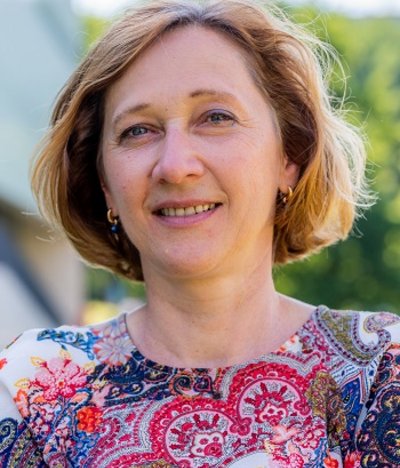
Eindhoven University of Technology, Netherland About the Speaker: Lada Hensen Centnerova graduated in Civil Engineering at the Slovak University of Technology in Bratislava (Slovakia) with a specialization in Building Services Systems in 1992. She then became assistant professor in the Department of Microenvironmental and Building Services Engineering at the Faculty of Civil Engineering of the Czech Technical University in Prague (Czechia), where she obtained her PhD degree in 2001. In 2016 she started working at Eindhoven University of Technology (TU/e, the Netherlands), initially as a project manager at the Smart Cities Program and since January 2018 as an assistant professor in the Building Physics and Services unit of the Department of the Built Environment. Next to this function, she started as operational manager of the PDEng program Smart Buildings & Cities in 2019. In this capacity, she is responsible for the daily operation of the post-master PDEng designers program Smart Buildings & Cities (SB&C) of the Stan Ackermans Insitute. Also, she is the current president of the Dutch chapter of the International Society of Indoor Air Quality and Climate (ISIAQ.nl) and vice-president of REHVA (the Federation of European Heating, Ventilation and Air Conditioning associations) since May 2022. Lecture: CLIMATE CHANGE AND ADAPTATION STRATEGIES IN HVAC DESIGN AND BEYOND Abstract: The presentation addresses different ways of adapting to climate change. The focus is on buildings and their energy systems. The latest findings in this field are summarised. The principles of designing technical systems that have a significant impact on the operation of buildings are described. |
|
| 5 | Prof. William P. Bahnfleth 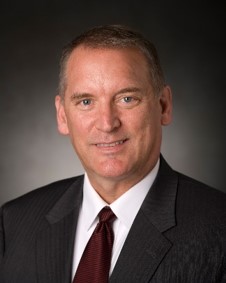
The Pennsylvania State University, USA About the Speaker: Prof. William Bahnfleth holds a doctorate in mechanical engineering and is a Registered Professional Engineer. He has extensive experience in professional practice designing district energy systems with a specialization in thermal energy storage. He has participated in more than 25 thermal storage projects worldwide. He is the author of over 200 publications. Dr. Bahnfleth is a past President of ASHRAE and past Chair of its Technical Committee for Thermal Energy Storage. He is a Distinguished Alumnus of the University of Illinois Dept. of Mechanical Science and Engineering and recipient of ASHRAE’s Bill and Louise Holladay Distinguished Fellow Award and F. Paul Anderson Award, ASHRAE’s highest honor. Lecture: THERMAL ENERGY STORAGE & SUSTAINABILITY Abstract: Active thermal energy storage is an established technology for improving the performance of heating and cooling systems that has achieved renewed relevance with the growth of renewable electric power supplies. This presentation will review fundamentals of thermal storage and discuss ways in which it contributes to the sustainability of integrated energy systems. |
|
| 6 | prof. Anatolijs Borodinecs 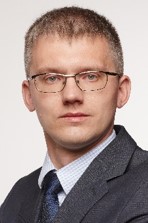
Riga Technical University, Latvia About the Speaker: Since 2013 Dr. sc. ing. Anatolijs Borodinecs holds professor status in the Institute of Heat, Gas and Water Technology of Riga Technical University. His main research areas are building energy efficiency and building physics. The major recently elaborated projects: “Deep nZEB modular retrofitting and energy efficient solutions for unclassified buildings”. He recently participated in INTERREG, FP7 projects as well in HORIZON2020. Under Fulbright scholarship Anatolijs had an opportunity to gain academic experience at Indoor Environment Center, Department of Architectural Engineering of the Pennsylvania State University. He is a certified HVAC designer as well as an energy auditor. As an energy auditor Anatolijs was in charge of several projects on solar energy systems design and implementation of dynamic energy simulation. 90 SCOPUS publications, SCOPUS h-index 12 Lecture: DESIGN AND MAINTENANCE OF MODERN ENERGY EFFICIENT BUILDINGS Part1 DESIGN AND MAINTENANCE OF MODERN ENERGY EFFICIENT BUILDINGS Part2 Abstract: The main challenge for engineers is to have all the pieces of the energy efficiency puzzle and to make them all fit together. The mains pieces of the puzzle are climate, building envelope, heating, ventilation and air-conditioning systems, human comfort requirements and indoor air quality. The presentation will address main parameters which have effect on building energy efficiency with a focus on Baltic climate. In order to ensure the energy efficiency of buildings, modern external building envelopes such as building heating, ventilation and air conditioning systems are becoming more and more complex. In addition, the latest COVID19 outbreak has highlighted the importance of proper ventilation systems; that in turn leads to, significant minimization of possible compromise between building energy efficiency level and quality of indoor environment. |
|
| 7 | prof. Tham Kwok Wai 
National University of Singapore Department of the Built Environment, College of Design and Engineering Visiting Professor, Czech Technical University About the Speaker: Professor Kwok Wai Tham is an Academy Fellow of the International Academy for Indoor Air Sciences (IAIAS) and the World Society of Sustainable Energy Technologies (WSSET). and former President and Trustee of the International Society of Indoor Air Quality and Climate (ISIAQ). He directs the NUS research program in Indoor Environment and Health and has published more than 300 articles in this field. He has contributed to the development of IAQ guidelines, internationally as a consultant to World Health Organization and in Singapore including the Singapore Standard SS 554. He is an editorial board member of major journals relating to indoor environment and energy, including Indoor Air and Energy and Buildings. He has given keynote speeches at Indoor Air and Healthy Buildings conferences. Lecture: UNDERSTANDING THE IMPACT AND VALUE OF INDOOR ENVIRONMENTAL QUALITY: exposure, pathways, mitigation and benefits Abstract: Indoors is the single most important environment that people experience and interact with. Among the various dimensions of indoor environmental exposure, the air path is a dominant one which continues to attract attention. Its impact on the perceptual, satisfaction, wellbeing and infection aspects have become better understood, and inspired evidence-based motivations for a greater adoption in codes, standards and guidelines. A brief description on how exposure to indoor air affects humans provides a preamble to the approaches adopted for the quantification of its impact. Metrics include perceptual constructs variously used in surveys and feedback; self-reported effects on experience of sick building symptoms and work performance; exposure indices, infection risk, biological measures of bodily reactions. Together they compose a more holistic understanding of how exposure to indoor air affects people. The implications of these on design and innovation opportunities are suggested, with a special consideration for the COVID-19 challenge. |
|
| 8 | Asoc. prof. Jakub Kolarik 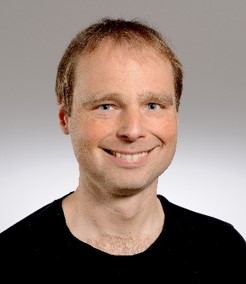
Technical University of Denmark, Denmark DTU Construct About the Speaker: Associate Professor Jakub Kolarik has a background in environmental engineering. His research interests include human thermal comfort, indoor air quality as well as systems and services that provide comfortable and healthy environment for building occupants. His current research includes innovative systems for residential ventilation, utilization of occupant feedback for optimization of building performance as well as research focused on understanding the role of building operators in the process of ensuring effective and healthy buildings. Jakub teaches courses focused on holistic energy renovations and utilization of building performance simulations in building design. Lecture: ENSURING COMFORTABLE AND HEALTHY INDOOR ENVIRONMENT IN (FUTURE) DWELLINGS Abstract: In my presentation, I will try to introduce the challenges related to design and operation of dwellings with respect to indoor environmental quality. It is a well known fact that people spend most of their time (some research says up to 90%) indoors. We are at home a substantial part of this time. Recent pandemic brought a paradigm shift in our working habits and while working from home, we increase the time spent in dwellings even more. The challenges we face when designing and operating dwellings are framed by the progressing climate change. I will introduce the research we conduct at the Technical University of Denmark to deal with these challenges. This research relates to mitigation of problematic conditions like overheating using innovative design strategies, developing new ventilation systems capable of better control of indoor environment as well as finding new ways how to monitor performance of existing system and commission them in a continuous manner to ensure that they perform as intended during their lifetime. |
|
| 9 | prof. Jan Hensen 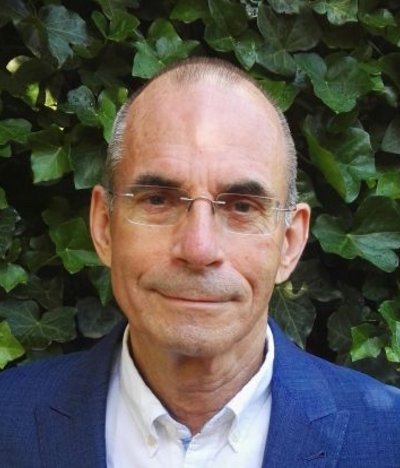
Eindhoven University of Technology, Netherland + Czech Technical University About the Speaker: Jan Hensen is emeritus full professor of building performance in the Building Physics & Services unit at Eindhoven University of Technology (TU/e), and also full professor of environmental engineering in the Department of Mechanical Engineering, Czech Technical University, Prague. His research and teaching focus on computational modeling and simulation for optimizing design and operation of high-performance buildings in terms of energy use and indoor environmental quality. He is editor-in-chief of the Journal for Building Performance Simulation. He is a Fellow of the International Building Performance Simulation Association (IBPSA), Fellow of the American Society of Heating, Refrigerating and Air-conditioning Engineers (ASHRAE), Fellow of the Federation of European Heating, Ventilation and Air-conditioning Associations (REHVA) and has received several other national and international scientific and practice awards. Lecture: BUILDING PERFORMANCE SIMULATION CHALLENGES AND OPPORTUNITIES Abstract: The presentation provides an overview of the background and current state of computational building energy performance simulation, and the opportunities there are in the context of energy efficient buildings and communities. This technology has the potential to deliver, directly or indirectly, substantial benefits to society and to the environment. However there exist also challenges such as quality assurance, the need to provide better early phase design support, multiscale approaches (from construction detail to district level), uncertainty and sensitivity analysis, robustness analysis (employing use and environmental change scenarios), optimization under uncertainty, and integration in the construction design and operation processes. |
|
| 10 | prof. Francesca Romana D'AMBROSIO 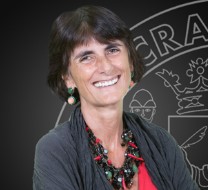
Department of Industrial Engineering in University of Salerno (Italy) About the Speaker: Full Professor of Building Physics at Department of Industrial Engineering in University of Salerno (Italy). Co-chair of Observatory for Gender Studies and Equal Opportunities at University of Salerno from 2014. Member of the Scientific Board of the CIBEC (Interdipartimental Center of Engineering for Cultural Heritage) of the University Federico II of Naples. Research Themes Thermal Comfort, Thermal Stress, Metabolic Energy, Thermophysical properties of clothing, Indoor Air Quality, Indoor Environmental Quality and search ThemesEnergy Saving in Buildings, Dampness in walls, Sustainability in the Energy field, History of Engineering. Lecture: HISTORIC BUILDINGS |